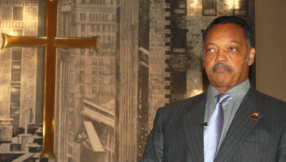
Hong Kong's Catholic community has been left fearing that one of the key tenets of its faith is under threat after the passage of new security laws last month.
Article 23 of the National Security Law makes "failing to disclose the commission of treason by others" a criminal offence punishable with lengthy prison sentences.
Human rights groups and members of the Church have expressed concerns that it could be used to pressure priests into revealing secrets shared under the Seal of the Confessional—which is considered inviolable and sacred in Catholic doctrine.
UK advocacy group Hong Kong Watch issued a letter warning of the threat posed by the laws in the lead-up to their passage through Hong Kong's Legislative Assembly, claiming that it constituted a violation of Article 18 of the Universal Declaration of Human Rights, which upholds the religious freedoms and rights of individuals.
"For many religious traditions, and especially for the Catholic Church, the practice of what is known as the Sacrament of Penance (otherwise known as the Sacrament of Reconciliation or Confession) is a religious act of absolutely pivotal, sacrosanct importance," the joint letter stated.
"At the heart of the Sacrament of Penance is the absolutely vital principle of confidentiality...a priest might encourage a penitent who has committed a serious crime to confess that crime to the authorities, the priest cannot report it himself and must never be held criminally liable for having heard that confession."
A spokesperson for the Chinese government accused the group of being "anti-China", and deliberately misrepresenting the law.
"The offences of treason and misprision of treason...do not target religious personnel or followers, and have nothing to do with freedom of religion," the spokesperson said. "In any case, freedom of religion is not for protecting anyone who has committed serious offences from legal sanctions."
Despite the government's denials, many priests fear that security forces will use the law to infringe on the sanctity of the confessional by threatening priests with imprisonment, sending agents into confessionals for the purposes of entrapment, or even planting listening devices in churches.
Speaking to the UK's Telegraph newspaper, one priest described the new law as "like a knife above your head". Other priests, speaking to the paper on the condition of anonymity, expressed fears about the impact of the legislation on their ability to serve the needs of their congregations and whether it would make it difficult to remain true to their mission to uphold the Gospel.
"For us true believers, we are not scared, we only worry that people in need will not be helped," another priest said.
"In reality, we are not able to spread the whole gospel, we are not allowed to speak the whole truth, we are not free to warn our people about the evil of communism and the harms it has done in history. What kind of truth-bearers are we, if we do not stand up for the truth? That's the main struggle."
Responding to the new laws, the Catholic Diocese of Hong Kong issued a statement stating that the legislation would not "alter the confidential nature of Confession (Sacrament of Reconciliation) of the Church", while also saying that "citizens have an obligation to ensure national security".
This has left many Catholics calling on the Church to take a firmer line in denouncing the new legislation, with Hong Kong Watch warning that it amounts to a crackdown on religion in Hong Kong by stealth, motivated by the fact many Catholic believers hold pro-democracy convictions.
"Instead of a physical crackdown on religion in Hong Kong, the authorities' aim is to create an environment in which religious leaders and practitioners feel obligated to self-censor, compromise and kowtow, in order to protect the basic freedom of worship that they enjoy," it said.













